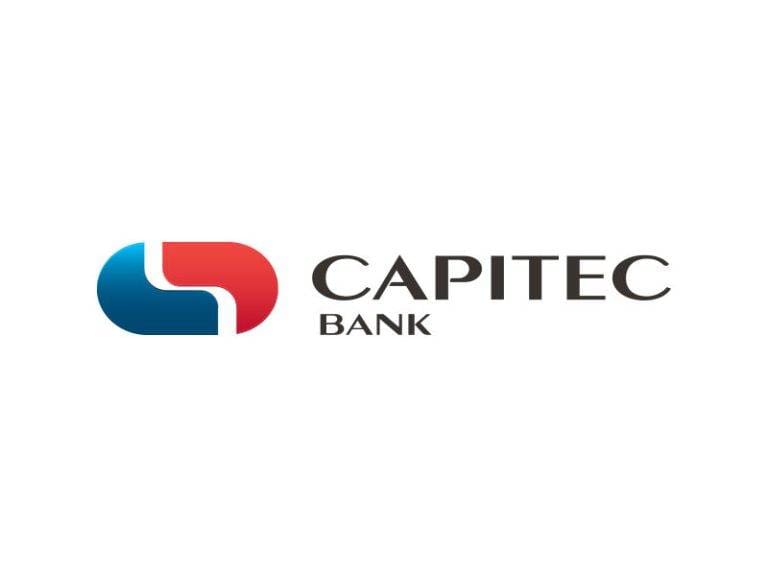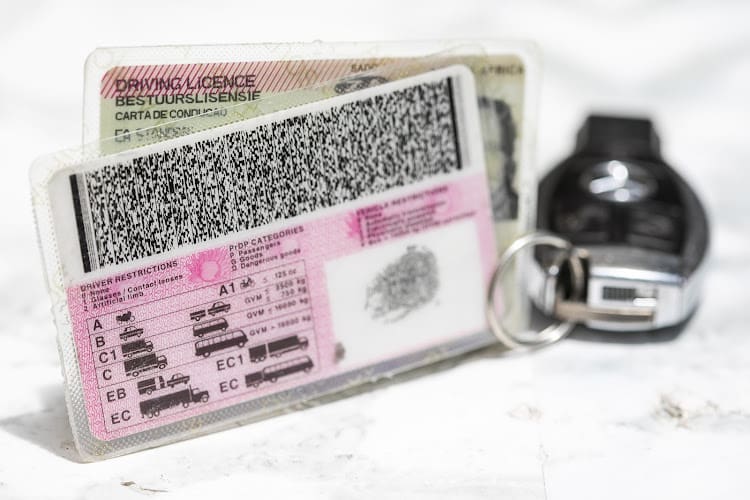Economic Decline Over Three Decades: The article highlights the Bureau...
Read MoreLatest News
Rand Faces Potential Depreciation to R21.40 Against Dollar
Investec's Warning: Investec, a leading financial institution, issues a cautionary...
Read MoreEskom’s Load-Shedding Woes Linger Despite Recent Relief
Despite a recent stretch of over 28 days without load-shedding,...
Read MoreCapitec CEO’s Whopping R65 Million Payday Raises Eyebrows
Financial Performance: Capitec Bank reports strong growth in headline earnings...
Read MoreEditor's Pick
Ripple’s Dip Amid SEC Clash Opens Buy Opportunity for XRP
Ripple (XRP) price falls to $0.5623 (R10.49), influenced by a...
Read MoreOndo’s Price Eyes $1 Milestone with Key Support Retake
Ondo (ONDO) is showing potential for recovery, closely following broader...
Read MoreNear Protocol’s Price Surge: A Potential Windfall for Investors
The Near Protocol (NEAR) cryptocurrency has overcome two major resistance...
Read MoreBitcoin Faces Hurdles: R1.3M Key for Pre-Halving Price Surge
Bitcoin's price struggles to surpass the $69,000 (approximately R1,300,650) mark,...
Read MorePopular Posts
How to reverse Capitec Bank cash send
The Capitec Bank Cash Send has become an alternative method...
Read MoreSouth African Police Service (SAPS) Salary Guide 2024
In 2024, the compensation landscape for police officers in South...
Read MoreSouth African Driver’s Licence Renewal Guide 2024
In South Africa, a driver’s license has a 5-year lifespan;...
Read MoreFNB Black Card 2024 Review
The FNB Black Card series, tailored for high-net-worth individuals and...
Read MoreEnergy
- Eskom’s Load-Shedding Woes Linger Despite Recent Relief
- South Africa’s Energy Outlook Brightens as Renewables Gain Momentum
- Charlotte Maxeke Hospital Grapples with Ongoing Power Outages
- Illegal Electricity Connections Claim Three Lives in Gqeberha Tragedy
- Eskom Achieves Milestone: Rolling Blackouts Suspended Indefinitely
- Power Crisis: Eskom Battles Major Outage in Pretoria
- South Africa’s Path to Energy and Water Resilience
- Eskom’s Electricity Prices Soar with New Tariffs
- Eskom’s Load Shedding Pause & Tariff Hike Explained
- City Power Cracks Down on Electricity Theft With Smart Meters
Business
- South Africa’s Escalating Organized Crime Sparks Urgent Concern
- CIPC Goes Digital: Ensuring Easier Verification of Business Documents
- Earnings Explosion: Novus Holdings’ Spectacular 500% Surge in H1 2023 Sends Shockwaves Through Market
- Glencore’s Currency Choice: Maximizing Dividends for Shareholders
- Capitec Bank Boosts Oversight with Director Appointments
- Anglo American’s De Beers Records $430 Million in Rough Diamond Sales for Second Cycle of 2024
- Mondi plc Shareholders Approve Special Dividend and Share Consolidation in General Meeting
- British American Tobacco Announces August 2023 Dividend Payout
- Sasfin’s Strategic Banking Shift
- Choppies Enterprises Limited Reports Strong Growth in Unaudited Financial Results for HY2023
Tax
- Revolutionizing Tax Compliance: The Power of Collaborative Bargaining
- SARS Achieves Historic Tax Revenue Milestone
- SARS Boosts Tax Process: Smoother 2023 Changes Ahead
- Mobile Tax Unit Rolls into Limpopo: Get Hassle-Free Tax Services at Your Doorstep!”
- SARS Admin Penalties: Navigating the Tax Maze for South African Residents and Expats
- Revolutionizing Tax Returns: SARS Unveils Major Updates to Corporate Income Tax System
- SARS Advocates for eFiling: A New Era of Efficiency for Tax Practitioners
- SARS Elevates User Experience: Major eFiling Upgrade Scheduled for Enhanced Security and Efficiency
Technology
- Razer Unveils Exciting Innovations at CES 2024, Including Aether Monitor Light Bar
- Sony’s Game-Changer: PlayStation Portal Redefines Portable Gaming
- Oppo’s Find N3 Flip: A Camera-Centric Foldable Breakthrough
- Apple Launches Vision Pro: A New Era of Spatial Computing
- Microsoft Teams Unveils AI-Powered Copilot: Boosting Collaboration!
- Xiaomi’s Game-Changing Smartwatch: Fitness Meets Tech
- Meta’s Game-Changing Smart Glasses: Style Meets Innovation
- Tech Startup Figure Raises $675 Million in Funding, Partners with OpenAI
- Patreon’s Creative Revolution: Empowering South Africa
- South Africa Gripped by Android 14 Bug: Multiple Profiles Plagued
- Discord to Introduce Game-Themed Items in its Store
- MSI Unleashes Gaming Power: Claw Challenges Steam Deck with Intel Muscle and 32GB Dominance in Handheld Showdown
- WhatsApp Introduces “Search by Date” Feature for Android Users
- Honor Magic V2: Unleashing Foldable Innovation in Style
- ChromeOS 117: Boosting Chromebook Brilliance
Crypto
- Coinbase intends to acquire BtcTurk, a crypto exchange, for R54 billion
- Kadena launches R1.5 billion Web3 grant program
- Floki Adapts to Regulation, Ensures Safe Crypto Staking Globally
- XRP Price Holds Steady Amid Key Ripple Events, Eyes Rally
- Binance CEO CZ to assist the Terra community, if there is more transparency
- Bitcoin could dip to R1.1M
- Ethereum is gaining ground vs Bitcoin Amid the crypto market rout
- Terra joins Crypto tax calculator Koinly platform
- Buterin says Terra should prioritise protecting the smallholders over the whales
- Binance warns to delist Terra’s LUNA if it falls below 0.005 USDT
- Market Wrap: Altcoins Outperform as Sentiment Strengthens; Bitcoin is in the ‘Value Zone’
- Solana Skyrockets to $200 Amid Bankman-Fried Sentencing Drama
| # | Name | Price | Changes 24H | Available Supply |
|---|
Careers
- Average Managing Director salary in South Africa 2024
- Average Insurance Appraiser salary in South Africa 2023
- Average Geologist salary in South Africa 2024
- Average Dentist salary in South Africa 2024
- Average accountants salary in South Africa 2024
- Average lecturers salary in South Africa 2024
- Banking Fees Guide in South Africa 2022
- 7 skills in demand to get a good job in South Africa 2022
- Higher Education Key to Job Success in Struggling South African Market
- Average Clinical Research Associate salary in South Africa 2023
Government
- Spring Gatherings Spotlight Enhancements in World Bank Operations
- Cape Town’s Central Line Revival: Hope on the Horizon
- South Africa’s Home Affairs Makes Strides Against Visa Fraud
- South Africa’s Tourism Economy Threatened as Foreign Tourists Urged Departure
- SA Treasury Unveils 2023 Switch Auctions: Enhancing Funding Strategy
- Ramaphosa Commits to Basic Income Grant in South Africa
- South Africa’s Economic Crisis: A Looming Port Congestion Catastrophe
- Fiscal Alarm: SA Premier Pushes Urgent Action on Budget Cuts
- South Africa’s New Border Management Authority
- Alleged Russian Spies Arrested in Germany Targeting US Bases
Economics
- FF+ Warns: Land Expropriation Threatens South Africa’s Economy
- Eastern Cape’s N2 Project Generates 3,000+ Local Jobs
- South Africa’s Black Industrialists Shine in Economic Empowerment Summit
- 5 best quick loans for emergency cash in 2024
- President Ramaphosa Urges Action on South Africa’s Education Crisis
- Johannesburg Water Crisis: Residents Protest as Suburbs Endure Drought
- Average General Worker Salary in South Africa 2024
- South African Businesses Embrace Innovation for Global Competitiveness
- South Africa’s Economy Shows Marginal Growth Amidst Sectoral Challenges
- South African Ministers Establish Task Team to Combat River Pollution
Personal Loan Calculator
You can never have financial freedom if you borrow without calculating. You need to know how much you will pay, understand if you can afford the loan.
Latest Financial Updates
We’re with you through thick and thin, updating you every step of the way. Our dedication is to helping you save money, and attain financial freedom.
Reviews
We are always looking for better financial deals for you, culminating to insightful reviews.


Investment Tips
There can be no Financial Freedom without sound investments.

Business Resources
Find latest financial resources for your business. From loans to service providers.

Career Tips
We share career tip to help you move from one level of financial freedom to another
Disclaimer
Rateweb strives to keep its information accurate and up to date. This information may be different than what you see when you visit a financial institution, service provider or specific product’s site. All financial products, shopping products and services are presented without warranty. When evaluating offers, please review the financial institution’s Terms and Conditions.
Rateweb is not a financial service provider and should in no way be seen as one. In compiling the articles for our website due caution was exercised in an attempt to gather information from reliable and accurate sources. The articles are of a general nature and do not purport to offer specialised and or personalised financial or investment advice. Neither the author, nor the publisher, will accept any responsibility for losses, omissions, errors, fortunes or misfortunes that may be suffered by any person that acts or refrains from acting as a result of these articles.














